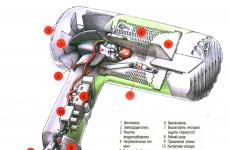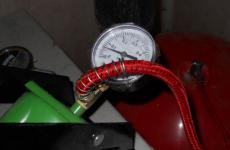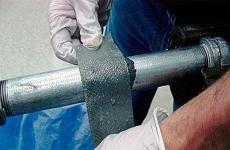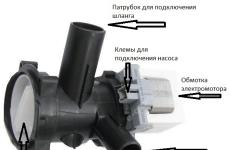Why does the pressure drop in the heating system?
If there is a failure in the heating system and a drop in pressure, then there is no need to talk about any sufficient heating. At the same time, pressure drops can affect not only the comfort of the owners, but also the heating equipment, which will invariably collapse. To eliminate the problem, it is necessary to find out the causes of pressure fluctuations, and know at what level the pressure in the heating system should be kept.
Pressure in a closed heating system
 The question: why the pressure in the heating system drops, arises among many owners of houses and apartments, and today we will try to answer this question. The dynamic pressure in the system is the force with which the coolant presses and it depends on the height of the column in the tank. In this case, the coolant still remains in a calm state.
The question: why the pressure in the heating system drops, arises among many owners of houses and apartments, and today we will try to answer this question. The dynamic pressure in the system is the force with which the coolant presses and it depends on the height of the column in the tank. In this case, the coolant still remains in a calm state.
Dynamic pressure is the force resulting from the movement of fluid through the system and acts on the pipeline from the inside. The working pressure of the maximum indicators is critical, and it is absolutely impossible to allow it to be exceeded.
Norm of pressure indicators
For houses where an autonomous heating system is arranged, the normal pressure level is no more than two atmospheres. With such a system, three atmospheres is already a critical indicator, as a result of which heating devices may fail, and the entire system will be depressurized.
When the coolant is supplied to the system, the pressure should be minimal, at the level of 1.5 atmospheres, since in the process of heating the coolant, it will expand and increase the pressure to the normal operating level.
In order for the normal working pressure to be maintained at the proper level, expansion tanks are arranged, which limit the increase in pressure. Expansion tanks come into operation when the pressure level rises to 2 atmospheres. The question why the pressure in the heating system drops in the presence of expansion tanks can be answered as follows: the capacity of the expansion tank was selected incorrectly, which simply does not cope with its task.
Causes of pressure drop in the system
Gradual or abrupt heating in a closed system can occur due to malfunctions of the boiler or a leak in the heater or piping.
It is not difficult to locate a leak with an open wiring of the heating system. In this case, you need to check the quality of installation and the tightness of all connections. If water was found under the pipes or the pipes themselves are wet, then this is the reason for the low pressure in the system due to a coolant leak.
If the pipes are routed in a hidden way, then it will not be easy to find the place of the leak. And here you will need to call specialists who will inspect the pipes and answer why the pressure in the heating system is dropping. To determine the cause of the malfunction, you will have to completely drain the coolant and fill it with air. The injected air, under high pressure, will whistle out where there are weak points and cracks.
After the problem area is found, repairs are made: the damaged area is replaced with a new one, the weakened connection is tightened and the sealing tape is wound. To make a high-quality repair of the heating system, invite an experienced specialist.
Boiler diagnostics
It also happens that when inspecting the pipes, no breakdowns and defects are found, then you should pay attention to the heating boiler. The boiler operation is diagnosed by an engineer who, using a special device, identifies microcracks and damage.
System start-up after repair
 Many people wonder why the pressure in the heating system drops even after repairs. The thing is that after starting the system, pressure drops can occur for several days and this is the norm. The reason for the fall is the air in the coolant, and it can be removed automatically or mechanically.
Many people wonder why the pressure in the heating system drops even after repairs. The thing is that after starting the system, pressure drops can occur for several days and this is the norm. The reason for the fall is the air in the coolant, and it can be removed automatically or mechanically.
If the pressure drops in a closed heating system that has been in use for more than a month, then the reason is most likely an incorrect calculation of the expansion tank. The safety valve is triggered when the atmosphere rises and discharges water. As a result, the coolant cools down and the pressure drops.






